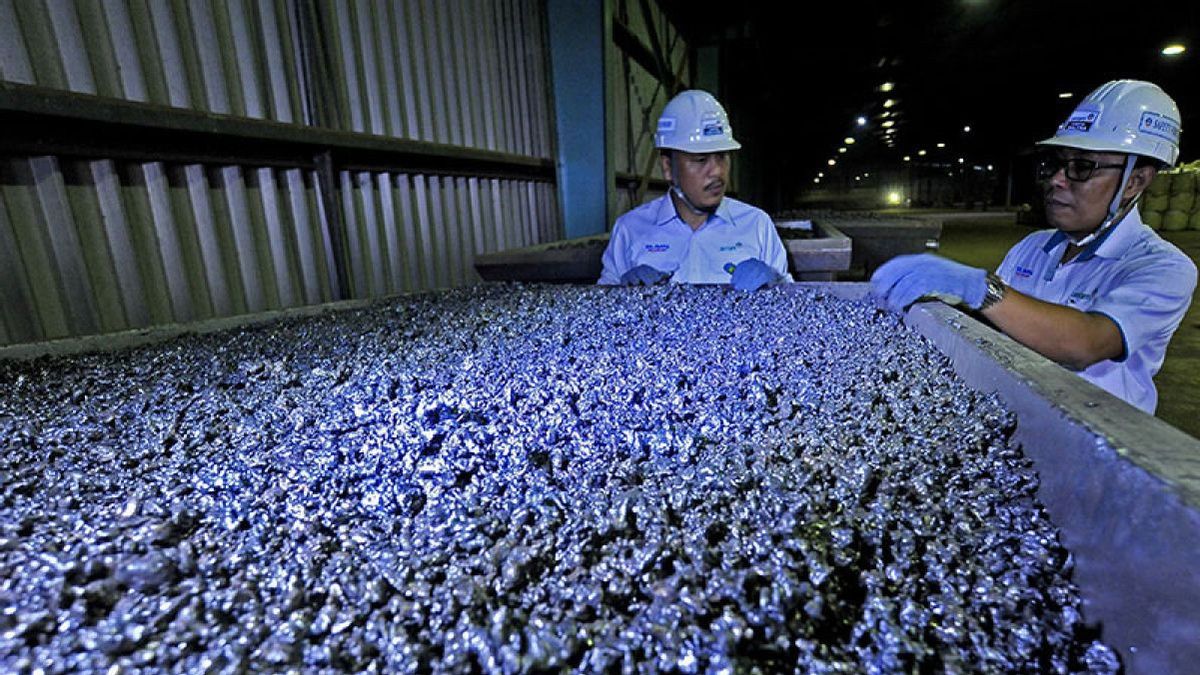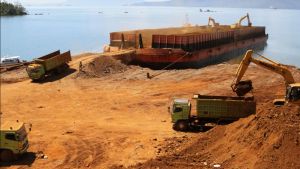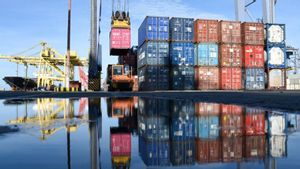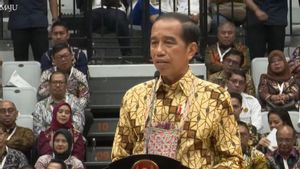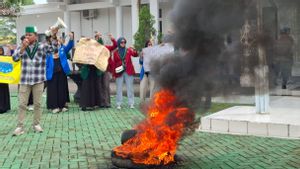JAKARTA - The Indonesian Nickel Entrepreneurs Association (APNI) and the Indonesian Chamber of Commerce and Industry urge the government to immediately implement a moratorium on smelter construction.
This was stated by the Secretary General of the Indonesian Nickel Entrepreneurs Association (APNI), Meidy Katrin Lengkey, and the Chair of the Indonesian Chamber of Commerce and Industry's Standing Committee for Mineral and Coal, Arya Rizqi Darsono.
Meidy said that his party was worried that the massive construction of smelters would further erode Indonesia's nickel reserves.
"We have repeatedly asked the government, we are worried that the raw material reserves will not be enough to cover all these factories," he said in Mining Zone, quoted on Tuesday, September 18.
He detailed that by 2023 there will be 54 pyrometallurgical factories producing Nickel Pig Iron (NPI), ferronickel, and even matte nickel.
Meidy said that currently there are several factories that import nickel ore from the Philippines. However, he ensures that the factories that import nickel are still running Indonesia's sustainable reserve so that processing activities are still carried out domestically.
He also asked the government to limit the construction of pyrometallurgical factories or factories processing high quality nickel or saprolite and increase the number of hydrometallurgical factories that process limonite.
The Chair of the Indonesian Chamber of Commerce and Industry's Standing Committee for Mineral and Coal, Arya Rizqi Darsono, also conveyed the same thing. According to him, Indonesia needs to implement a moratorium on pyrometallurgical smelters.
"In fact, we hope for hydrometallurgy. What we need to remember is that Indonesia still holds the number 1 reserves in the world for nickel, but it is true that reserves are running low for saprolite. In fact, we hope to make it a kind of entry into the battery ecosystem, so hydrometallurgy must be increased so that we can become a battery producing country," explained Rizqy.
Moreover, he said, Indonesia already has battery factories such as the Indonesia Battery Corporation (IBC) which can utilize finished materials from these factories.
"Indonesia instead imports from the Philippines. This shows that raw materials are getting thinner," concluded Rizqy.
Indonesian Nickel Reserves
Minister of Energy and Mineral Resources (ESDM) Arifin Tasrif said that Indonesia still has adequate nickel reserves and potential.
Arifin said that Indonesia's nickel reserves would still be sufficient for the next 15 years.
"There is potential for nickel reserves now. With the same capacity it could last for 15 years," said Arifin to the media, quoted on Saturday, September 16.
SEE ALSO:
He detailed that Indonesia's nickel reserves are 5.3 billion tons, while the nickel potential is 17 billion tons, divided into two types, namely high-grade nickel or saprolite which is specifically used as raw material for batteries, and low-grade nickel or limonite which will be used as raw material. stainless steel.
Arifin added that the life of Indonesia's nickel reserves could be extended to more than 15 years by developing the recycling industry.
"In the future, the steel industry could have a recycling industry, it could take longer to top up. We just don't want to be wasteful," concluded Arifin.
The English, Chinese, Japanese, Arabic, and French versions are automatically generated by the AI. So there may still be inaccuracies in translating, please always see Indonesian as our main language. (system supported by DigitalSiber.id)
